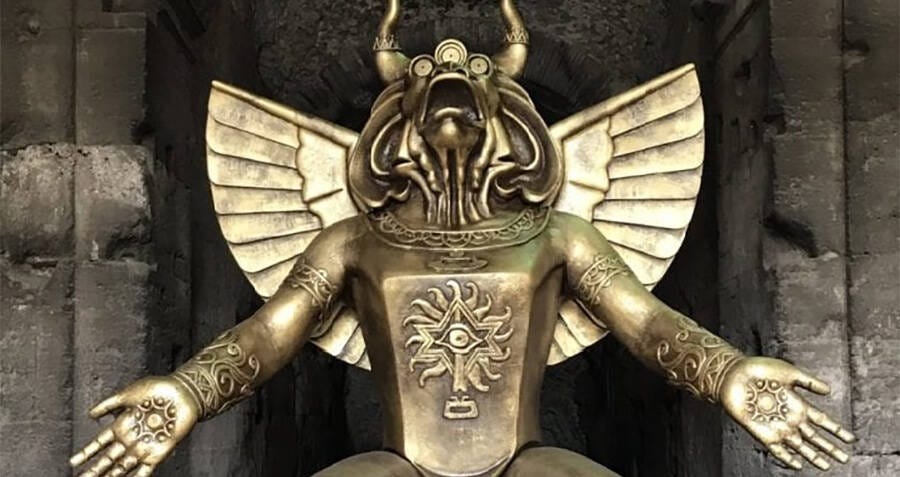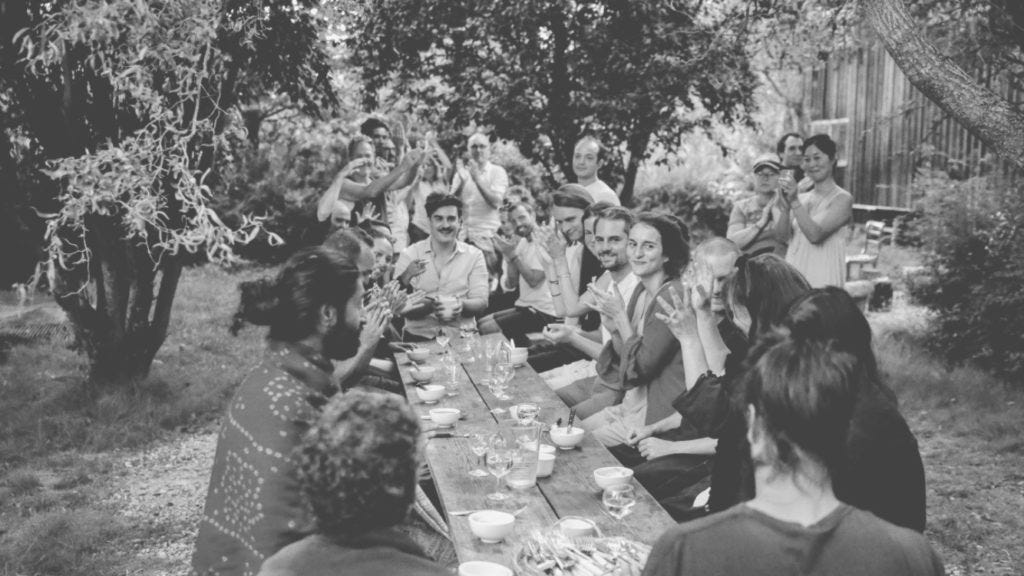#9: Decentralised Tech & the Future of Organising
a big hot list of web3 people & projects with real social impact potential
If you believe in the social impact potential of cooperatives, self-managing organisations & mutual aid networks, but, like me, you’ve been skeptical about web3 (cryptocurrencies, DAOs & blockchains) then I invite you to take a second look. In this newsletter I’ve compiled my favourite web3 podcasts, articles, people & projects to maybe convince you that there’s something worth paying attention to here. Before I get to the list though, let me share some more context about what web3 is and what problems it is trying to solve.
I just got off the phone with a software-development company who are sitting on a $200M+ treasury, which they are preparing to hand over for their community to govern. In most sectors, this would be quite a dramatic proposition, but in the emerging new world of “web3” this is business as usual.
Web3 promises a new technical substrate for the internet, with blockchains and cryptography and other inscrutable gadgetry. But more importantly, it promises to rebuild the web with a new set of values: less centralised power, more distributed ownership, more user sovereignty. According to it’s proponents, web3 is going to save us from the evils of Web 2.0 (mass surveillance, extractive economics, propaganda, misinformation, etc). To its detractors, it’s the greatest speculative bubble in history & an obscene waste of energy. I think it could be both.
Over the past few months I’ve been down the web3 rabbit hole, learning about cryptocurrencies and smart contracts and decentralised autonomous organisations (DAOs). What I’ve found is a lot of uncorroborated hype, get-rich-quick mythology, and naive utopianism. And I’ve also found some of the boldest innovations in cooperative ownership and governance that I’ve ever seen.
Personally, I care a lot about distributed governance and ownership, so I’ve decided to commit a decent chunk of my time, money & attention to supporting the development of this space. I’m still new here, but I feel like I’ve got my bearings well enough that I can help to orient other newcomers with a list of some of the most interesting projects & people. Before I get to the list though, I think it could be useful to introduce some of the theoretical framing that underpins much of this movement.
Moloch: God of Coordination Failure
In 2014, Scott Alexander published an essay called Meditations on Moloch, an evocative introduction to “coordination failure”.
A coordination failure is a class of problems where all participants would be better off if they cooperate, but without a trustworthy framework to coordinate their actions, each individual follows their rational self-interest, leading everyone to an outcome where everybody is worse off.
An arms race is a classic example: no sane government wants to build world-destroying nuclear bombs, but if there’s a chance that your enemies are building them, it’s in your best interest to get there first.
Coordination failure is a hard concept to distill into a few words, so if you want a deeper understanding, I definitely recommend reading Meditations on Moloch or check out Daniel Schmachtenberger’s work.
Coordination failure is one useful lens to view the interlocking crises we face in modern societies. For example, climate change would be easier to deal with if everyone could agree to take simultaneous action to reduce carbon-intensive activity. But without that agreement, it’s in everyone’s short term self-interest to keep polluting.
The solution to coordination failure is a mix of social conventions & formal rules: think of the social pressure we put on companies to be more ecologically responsible, backed up by a police force that fines polluters.
So this is one of the reasons for the utopian optimism in web3: perhaps this new technology can help us to solve the global coordination failures that have us racing towards a grim future. The hope is that maybe we can invent a new class of virtual institutions that more effectively encode our values into our economic & legal systems. These institutions will be better able to solve coordination failures because they’re more trustworthy, governed by transparent, programmatically-enforced rules instead of corruptible officials. And they’re global-by-default, not limited to artificial nationstate boundaries.
For now, the best name we have for this new class of virtual institutions is “DAOs” (Decentralised Autonomous Organisations). The unnamed company I mentioned in the opening of this piece is becoming a DAO. In practical usage “DAO” is quite a vague term, it doesn’t specify exactly how the organisation is to be governed. But the intention is these organisations are not governed by a central decision-making body or a charismatic leader, but by a decentralised network of agents participating within a transparently accessible programmatic ruleset. This is a new concept, but it has some heft: there are already more than a dozen DAOs who have each exceeded a $1B market valuation.
What I’ve found in the DAO space
Here are some of the most compelling interviews & articles that got me excited about web3:
Back in March 2021, I heard this interview with Stephen Reid connecting the history of cooperatives to the future of DAOs. This is the conversation that sent me down the web3 rabbit hole.
Then in May, the Future Thinkers caught my attention when they raised money for their regenerative village project by selling digital trading cards (NFTs).
The Blockchain Socialist is currently my favourite podcast for bringing a leftist perspective to web3; I recommend starting with their interviews with Rhea Myers and Samer Hassan.
David Ehrlichman’s interview on The Other Side podcast is one of the best examples I’ve found of someone entering web3 with prior expertise in building impactful real-world networks. No hype, just practical experience.
I loved this podcast with Kim Stanley Robinson interviewed by Gregory Landau. KSR’s optimistic climate change novel The Ministry for the Future included a carbon-backed cryptocurrency to help us to avert climate disaster; Landau’s project Regen Network is doing just that.
I was super inspired by this interview with one of the Coordinape founders: they’re building a tool for peer-to-peer compensation schemes in decentralised organisations.
Some of my favourite web3 governance thinkers are the crew at Other Internet. See for example Kei Kreutler’s excellent piece on the (cooperative) Prehistory of DAOs, or this deep research into UniSwap’s billion-dollar DAO.
Legendary cooperatives scholar and Occupy Wall Street veteran Nathan Schneider published this paper Cryptoeconomics as a Limitation on Governance, which has opened a meaningful dialogue with Ethereum founder Vitalik Buterin.
Also I must give a shoutout to my friends at DisCO.coop have been charting this course many years before I started really paying attention; check out their manifesto exploring blockchain, AI, the commons, feminism, cooperatives, cyberpunk, and more.
Specific Web3 Projects
Here’s a sample of some of the web3 projects I am interested in right now:
Panvala League: a decentralised grant-making body designed to fund community life.
Proof of Humanity — identity verification system to enable “one person, one vote” governance, and a Universal Basic Income project that has payed me more than €2000 over the past few months.
OrcaProtocol & Squads — two new coordination tools for “pods” or “squads”, i.e. small self-managing teams that develop high trust and can work for multiple DAOs.
KlimaDAO — a financial hack to drive up the price of carbon offsets, making carbon sequestration more profitable (endorsed by Occupy Wall Street cofounder Micah White).
CabinDAO — a co-living residency program for digital nomads & online creators to stay in the Creator Cabins, funded and governed by a decentralised community.
Seeds — another project who like Regen Network are developing incentives for regenerative land management and other ecological good deeds.
Commons Stack, Giveth & Gitcoin are three different approaches to solve “public goods funding” (i.e. the stuff that everybody needs but nobody wants to pay for).
Mirror — decentralised publishing platform to give media creators new economic tools (think crowdfunding 2.0).
For even more examples, see this introduction to the state of the DAO landscape in 2021.
Update 22/11: check this list of DAOs for black, African & global south communities.
This space is evolving so fast this list will be outdated as soon as it is published. One way to stay up to date is to subscribe to this Twitter list I’ve curated, with 100 of the most interesting people in web3.
🤑 Note: most of these projects also have cryptocurrency tokens associated with them; meaning you can support them now and be financially rewarded if they become successful. If you’re interested in that see my introductory guide to cryptocurrency investing.
We decide what web3 means
So: you tell me, is web3 worth getting excited about? Or is it another step on the road to digital authoritarianism? From my point of view, the possibility space is wide open, and incumbent powers are on the back foot. The future is being created by the builders, so if you’ve got something to say: roll up your sleeves, because all these projects are open for contributors.
Microsolidarity updates
Regular readers of this newsletter will know about Microsolidarity — my community building method that helps people to find belonging & meaningful work. There have been a lot of developments since my last newsletter. There’s too much to cover here, I’ll have to write a separate update. I can give some quick highlights though:
This year we’ve trained more than 200 people in the methodology. We’re having our first face-to-face Microsolidarity gathering in May 2022 in Belgium — pre-register your interest here. 🎉
This new interview with me by Tasshin Fogleman (audio / video) is a good snapshot of where the project is at and what’s coming soon.
I keep interviewing Microsolidarity practitioners and sharing the conversations in video and podcast form, so you can subscribe on Youtube or your preferred podcast app to stay up to date with them.
Joe Lightfoot invited me to his podcast, where we had quite an exposing conversation exploring the connection between my fundamentalist Christian upbringing and the community building work I’m doing now.
Finally, I want to shoutout my friend Karl Steyaert. On January 4-9, he’s running a 5-day workshop as part of a 1-month residency at the Life Itself Hub in Bergerac, France. The residency is Cultivating Conscious Community and Karl is an absolute master of this craft. If you want to learn more of the personal & interpersonal practices for building deep community, I can’t recommend his workshop highly enough.
If you made it this far, thank you for your attention! If you want to be in touch with me, reach out on Twitter: I’m @richdecibels.







Hi Richard - hope you're doing well. Is there an update to this list? All the best, Carne (Feb, 23)